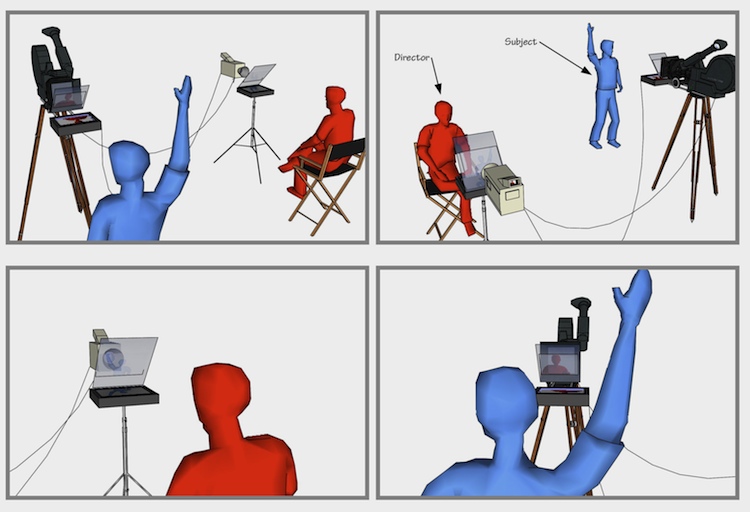“The police are the thin blue line separating society from anarchy” – Doug Mulder
Errol Morris’ style is quite unique in that he lets us follow these people as they re-tell the story from their perspective without any form of narration from the Morris himself or any form of appearance from him. His 1988 documentary The Thin Blue Line was this film that people either loved or hated it at the time of its release.
One of the reasons people would’ve either loved it or hated it, is that the story seemed to present itself as more fictional than a documentary with this new style of re-enactment of the different accounts of those “involved” on the night of the police officer’s murder. Years later, the re-enactment has now become a staple for crime-drama shows and the documentary genre. Morris incorporated this into the film to provide the audience with a visualisation and a b-roll in case Morris wanted to remove a certain section in the interview.
For me, the film took a lot for me to invest myself in as it was confusing without any name titles at the bottom of the screen for the amount of those interviewed. However, Morris managed to make me invested into this case through his use of The Interrotron. Essentially, it felt like we were being personally talked to as each interviewee stared down at the barrel of the lens, as if they were piercing through our souls (well some of them).

Co-Design describes the technique perfectly:
“by shooting through a simple two-way mirror with a video monitor mounted under the camera lens, Morris can film his subject and make eye contact with him/her from the exact same angle… it’s a two-way street: the same mechanism gives the interviewee continuous eye contact with Morris, as well… the Interrotron’s subtle design genius humanizes the filmmaking process enough to break down the subject’s emotional barriers.”
Another thing that compelled me was how Morris cleverly divided each section up from Randall Adam’s and David Harris’ completely different recollections of that night, to the false testimonies from witnesses, and even the various authorities that were involved with the case over the 12 years. No wonder he was able to prove Randall Adams innocence! And how chilling was that recording of Harris’ last interview with Morris??
Although Morris’ proved Adams’ innocence, he also made a huge profit over his life story. Essentially, Adams would receive 0 profit from his life story if he were to tell his interview on a talk show for instance, while Morris would make a profit just from signing a Morris’ release form from this film. Thankfully, the case was settled out of court and Adams’ received sole use of all things written or produced about those 12 years of his life.
Morris responded to this incident by saying that “[Adams] became very angry at the fact that he had signed a release giving me rights to his life story. And he felt as though I had stolen something from him. Maybe I had, maybe I just don’t understand what it’s like to be in prison for that long, for a crime you hadn’t committed. In a certain sense, the whole crazy deal with the release was fuelled by my relationship with his attorney. And it’s a long, complicated story, but I guess when people are involved, there’s always a mess somewhere.”
Yes. There’s always a mess somewhere – especially when you try to profit from someone else’s 12 years of imprisonment and their innocence.
RESOURCES:
Pavlus, J. (2016), “Errol Morris’s Secret Weapon for Unsettling Interviews: The Interrotron”, Co-Design, Date accessed: 10/03/2018. https://www.fastcodesign.com/1663105/errol-morriss-secret-weapon-for-unsettling-interviews-the-interrotron

